Wales council elections: Young voters call for politics lessons
- Published
How do you get young people to vote?
Children should be taught about politics in school to encourage them to vote, according to young people about to vote for the first time.
Those aged 16 and 17 were able to vote for the first time in Wales for the Senedd elections in May 2021, although turnout was low among this age group.
Olivia Winter, 17, now teaches young people about politics but said she only recently learned what democracy meant.
The Welsh government said it had encouraged young people to register.
Ms Winter, from Cardiff, was one of a group of young people running an event at Coleg Gwent's Ebbw Vale campus.
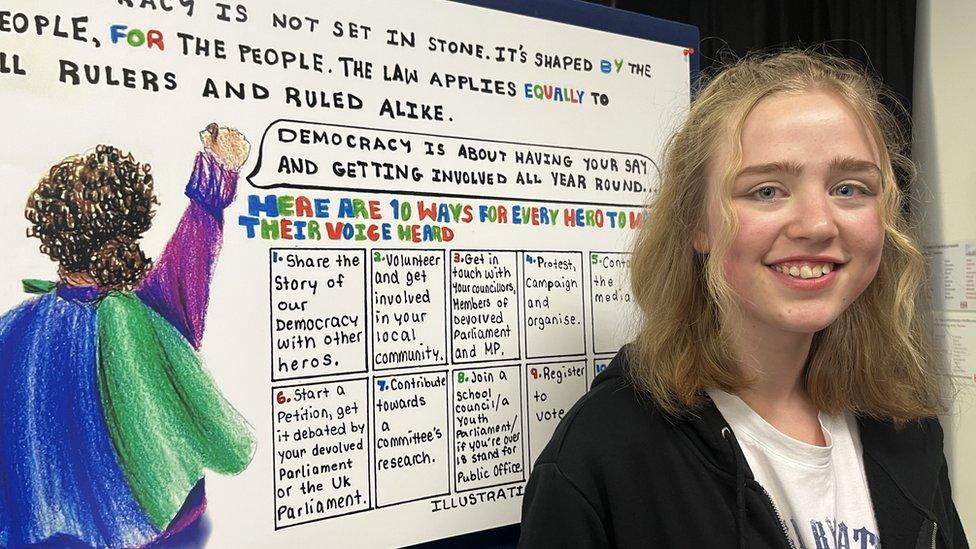
Olivia Winter, 17, says she did not know what the word democracy meant a year ago
About 300 pupils aged 16 and above from three schools in Blaenau Gwent learned about how democracy in the UK works through a series of group activities.
The event was the idea of Democracy Box, which recruits 16 to 26-year-olds to get people to vote.
The organisation is holding pop-ups around Cardiff and Newport in the run-up to the 5 May election, as well as putting out information on social media in an attempt to reach young voters.
'It's really working'
"These kids were passionate about stuff, they really cared, but they literally had no idea how to change it," said Ms Winter.
"So that's what today is, and I think that's really working."
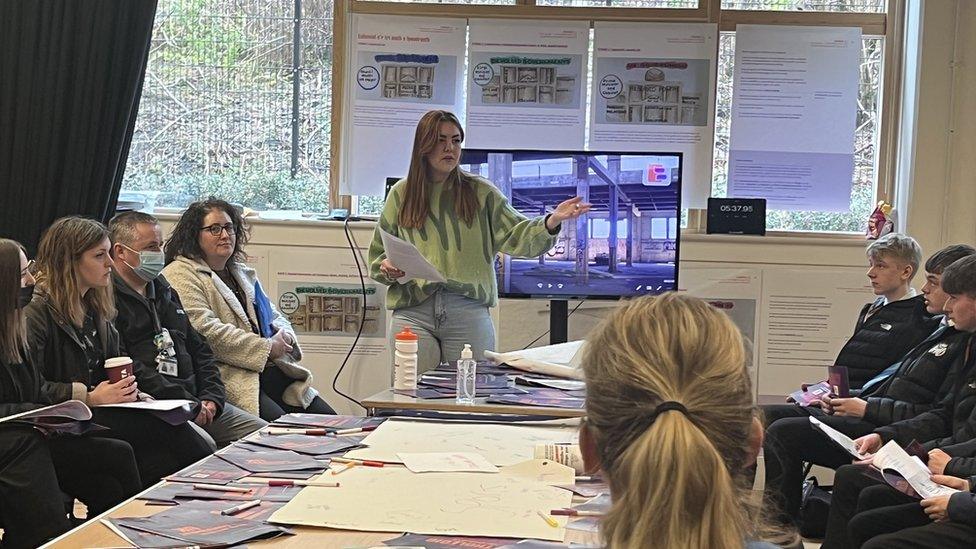
Teens have been calling for a better political education as the local elections loom
Ms Winter said schools and governments should be taking more time to educate people like her.
"We're the future so we have ideas of what we want to change, so having those tools and ways to apply our voice is really important," she said.
Despite being given the right to vote for the first time in last May's Senedd elections, figures showed 50% of that group registered to vote, with an estimated 60% of those actually voting.
This age group can also vote in Scottish parliament elections, but not for the UK parliament.
A previous report on Welsh votes at 16 said work engaging youngsters needed to start earlier.
One of its authors estimated voting in the age group was up to 10% below the national average.
'It's not as complicated as you think'
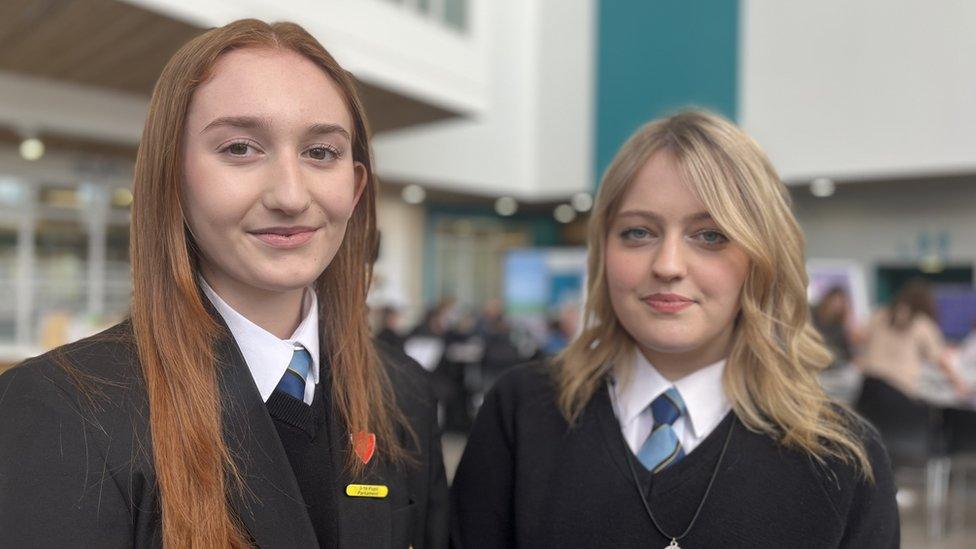
Aimee and Sophie, both 16, say taking part in the workshops has made them feel more confident
Pupils Aimee Flay and Sophie Thomas, both 16, of Abertillery Learning Community school, said they were "clueless" about politics and had not known the election was happening.
But after taking part in the workshops, both felt much more confident.
Ms Flay said young people "knew how to explain things to us".
"It's a lot nicer having younger people talk to you," she added.
Along with Tredegar Comprehensive and Brynmawr Foundation School pupils, they were given QR codes to connect them to a voter registration website.
Neither Ms Flay nor Ms Thomas voted in the Senedd elections but said they were looking forward to voting in the council elections.
"I'm really excited to learn more because it's not as complicated as you think it is," Ms Flay said.
Turnout in Wales' 2017 local elections was 42%, while the UK average was 35%, far lower than the UK parliamentary elections.
The Welsh government has been trialling new ways to engage voters, including voting before polling day.
Coleg Gwent's Ebbw Vale campus will become a flexible polling station where people can vote a week beforehand.
It will run alongside early voting stations at a Bridgend school and Caerphilly and Torfaen council offices.
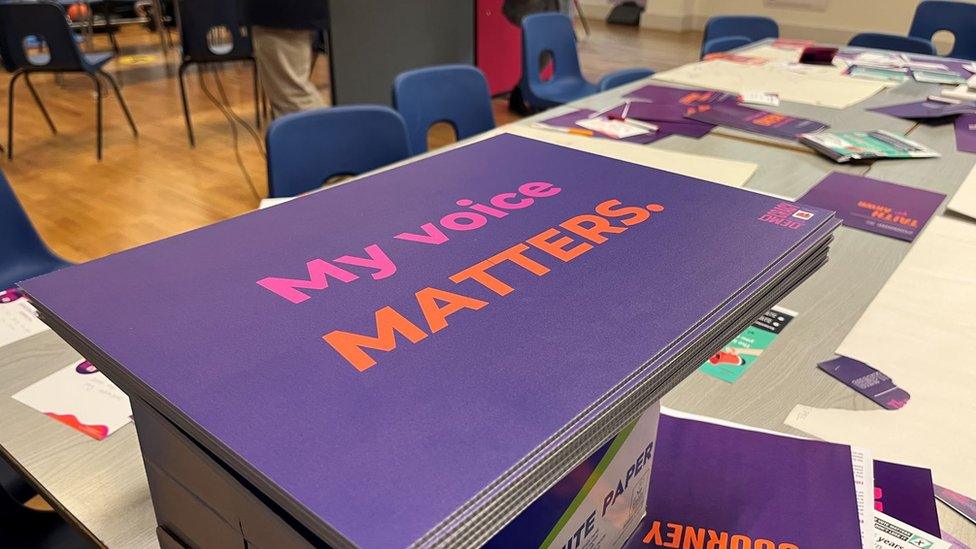
Politics is "brushed over" in schools, according to Blaenau Gwent electoral officer Katherine Watkins-Hughes
Katherine Watkins-Hughes, of Blaenau Gwent council's electoral department, said events like this helped explain councils' powers.
"I think that in schools, politics is kind of brushed over," Ms Watkins-Hughes said.
She said she believed a lack of education among parents perpetuated the problem.
Jess Blair, of Electoral Reform Society Cymru, said political education in Wales was patchy.
She wanted to see a plan for it laid out in the curriculum and for teachers to feel confident teaching it.
The Welsh government said it had been encouraging people to vote.
A spokesman said: "Our new curriculum for Wales aims to support learners to become ethical, informed citizens of Wales and the world.
"Provision of high quality education on citizenship and politics will be essential in successfully delivering this."
The registration window has passed, but if you are already registered you can still apply for either a postal vote by 19 April or a proxy vote by 26 April.
- Published25 March 2022
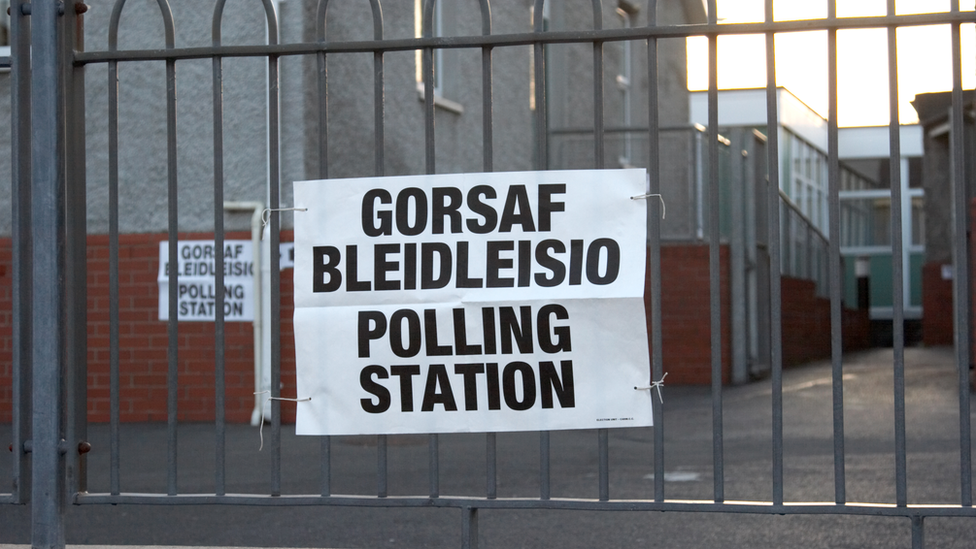
- Published21 March 2022
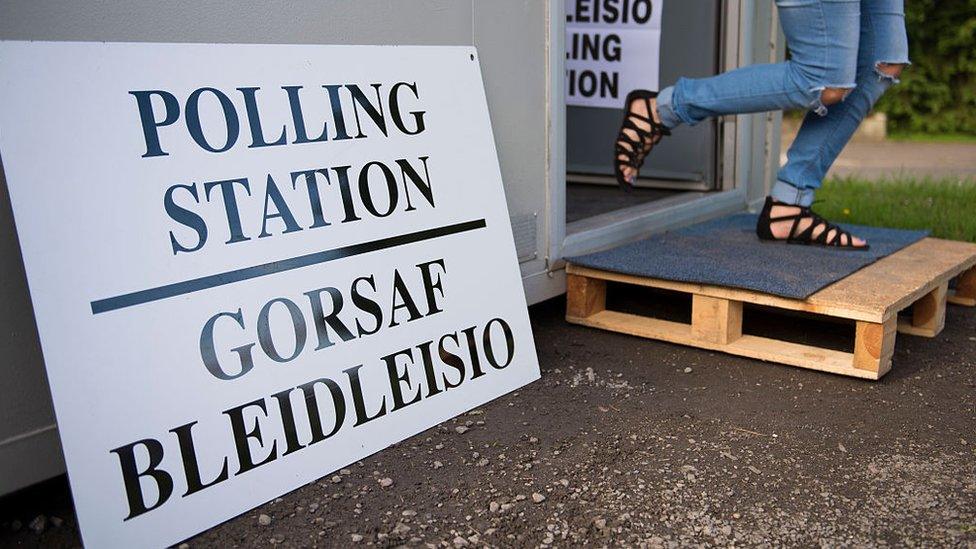
- Published12 April 2022

